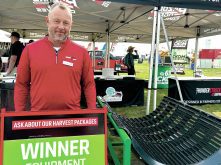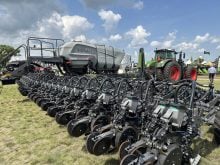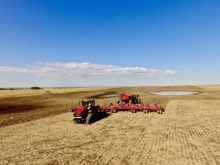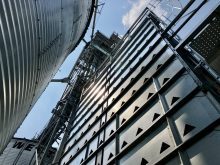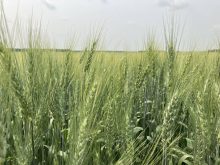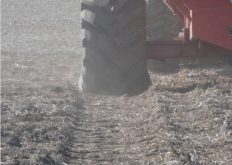Low-hanging pods in crops like soybeans are often dropped by a conventional header, resulting in yield loss. That’s where Zac Corbin, sales and marketing manager for AWS Airbar, says his product can help.
The AWS Airbar attachment is designed to blow material back and away from the knife up onto the draper belts where it can be pulled up into the feeder house, reducing the amount of pod loss.
“The air at the nozzles is coming out around 200 m.p.h.,” he says. “And what that’s doing is those low-lying pods on the knife that fall back into the field are thrust onto the canvas or toward the auger, reducing shatter loss by one to four bushels per acre.”
Read Also
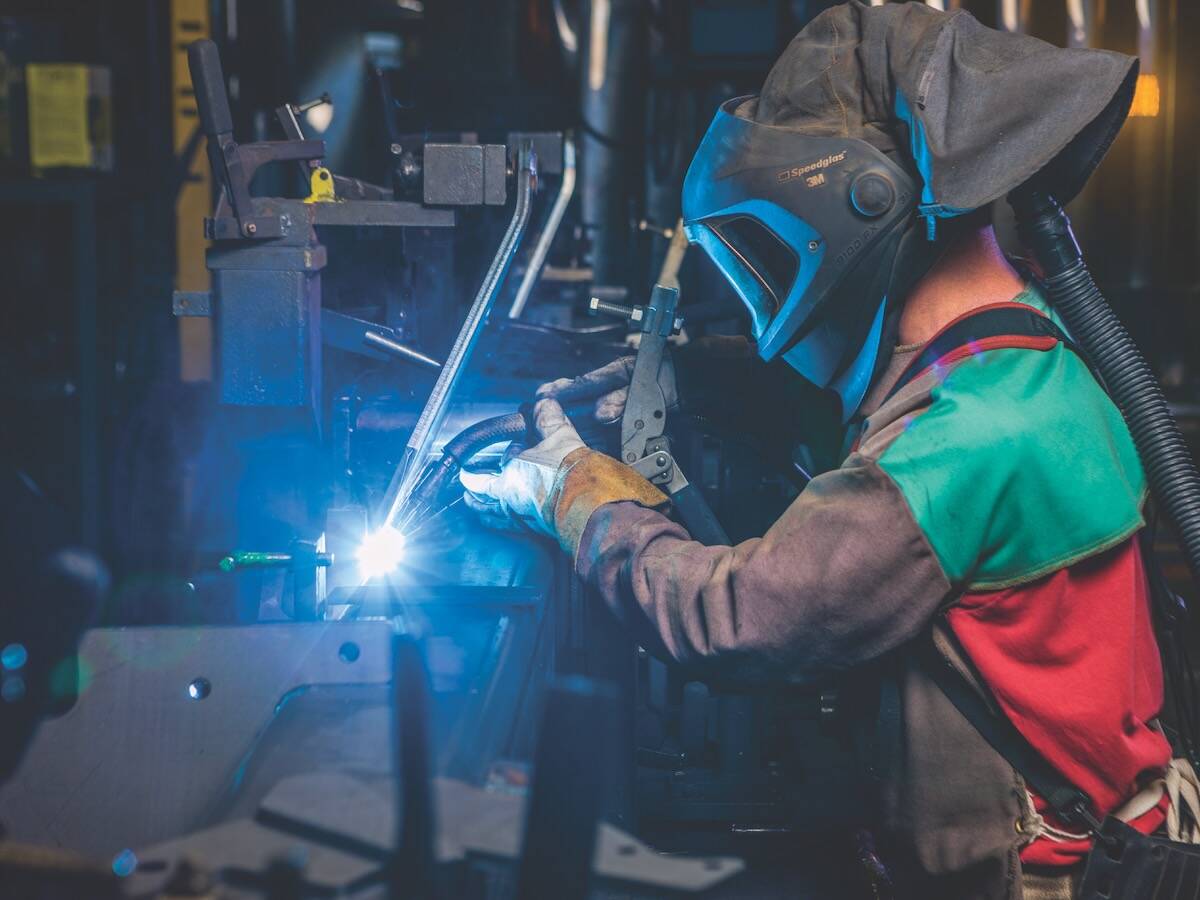
Farm equipment market unlikely to pick up
North America’s farm machinery sales have been slow and uncertain thanks to tariffs and trade disruption. There’s not a lot of hope for change in 2026.
And the airflow also helps prevent any buildup of material behind the knife.
“Other added benefits are crop flow,” he says. “You’re not getting that crop building up behind the knife, causing the operator to slow up and allow that to clear. So, you’re getting a more consistent ground speed.”
Return on investment
Corbin says he’s heard from customers who claim they have reduced losses by that one- to four-bushel-per-acre estimate. And some said their investment in the Airbar showed a payback in just one year. That, of course, would depend on several variables. But even a one-bushel-per-acre improvement on large acreages due to reduced losses could go a long way toward covering the initial investment cost.
“The return on investment is very high with our systems,” Corbin says. “We’ve had many farmers claim the system paid for itself within the first year, with a one- to two-bushel increase, when we do the math. If you’re running 500 acres … it’s definitely something you can turn around in the first year and be profitable.”
The AWS Airbar was originally designed to reduce losses in edible bean crops for customers in Ontario, Corbin explains.
“We were born out of a John Deere dealer in southwestern Ontario for edible beans about 25 years ago,” he says. “Since then, we’ve seen the system being adapted to all variety of crops. Lentils out here in Saskatchewan is a really big market for us, as well as chickpeas, soybeans and pulse crops.”
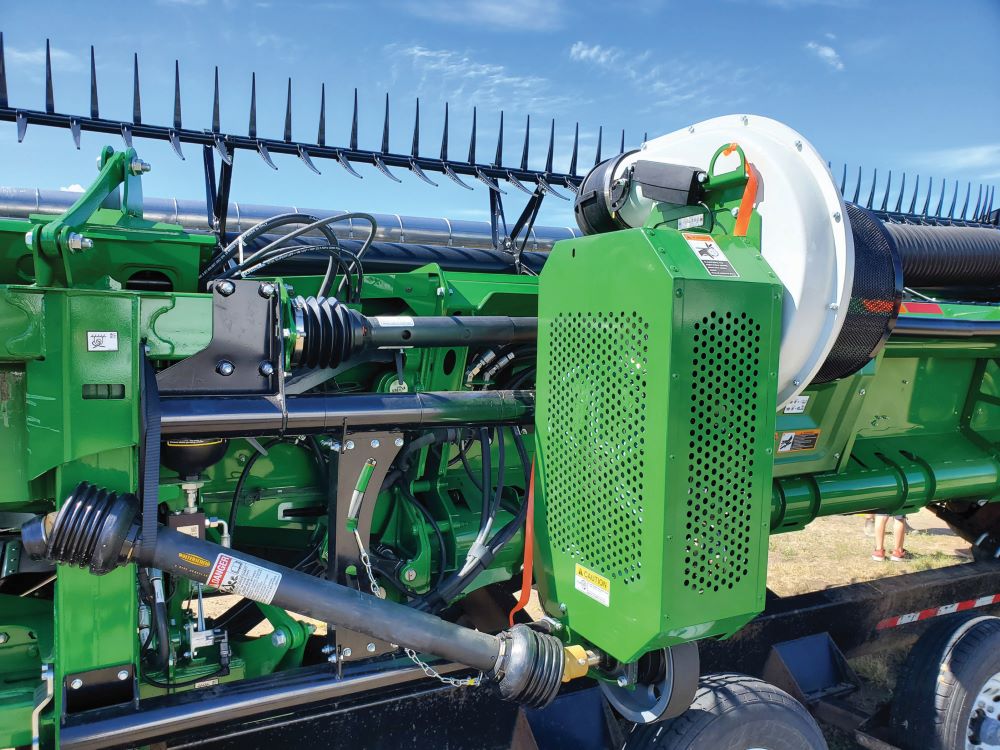
Best-driven fan, no gearbox
The Airbar uses a belt-driven fan design without any gearboxes. It gets driven off of the right side of the combine feeder house, and mounting it is straightforward. The system can be used on any of the popular headers from the newest models to even some older ones.
“We supply systems for all of the major headers, all the way down to the older John Deere 900 series, the 1020s. The Geringhoffs and Honey Bees of the world, we supply them all. We’re hooking up to the feeder house reverser gear on the right-hand side. That’s powering the fan and supplying the air.
“The biggest thing for us at AWS is service and simplicity, so we’ve designed the system to be exactly that. It’s a belt-driven fan, which is very efficient. Should anything happen during harvest, it’s very serviceable. There’s no gearbox that’s going to require days of downtime. If something happens, it’s a belt, bearing or pulley. Those are really serviceable.”
Power demand is three-quarter horsepower per foot of manifold. So, a 40-foot header draws about 30 extra horsepower from the combine engine.
“Cost for an average kit will range between $15,000 and $20,000, depending on what you get,” says Corbin. “We retail through all of the major mainline dealers.” For more information on the AWS Airbar and to see a video of it in action, visit the company’s website at www.awsairbar.com.




